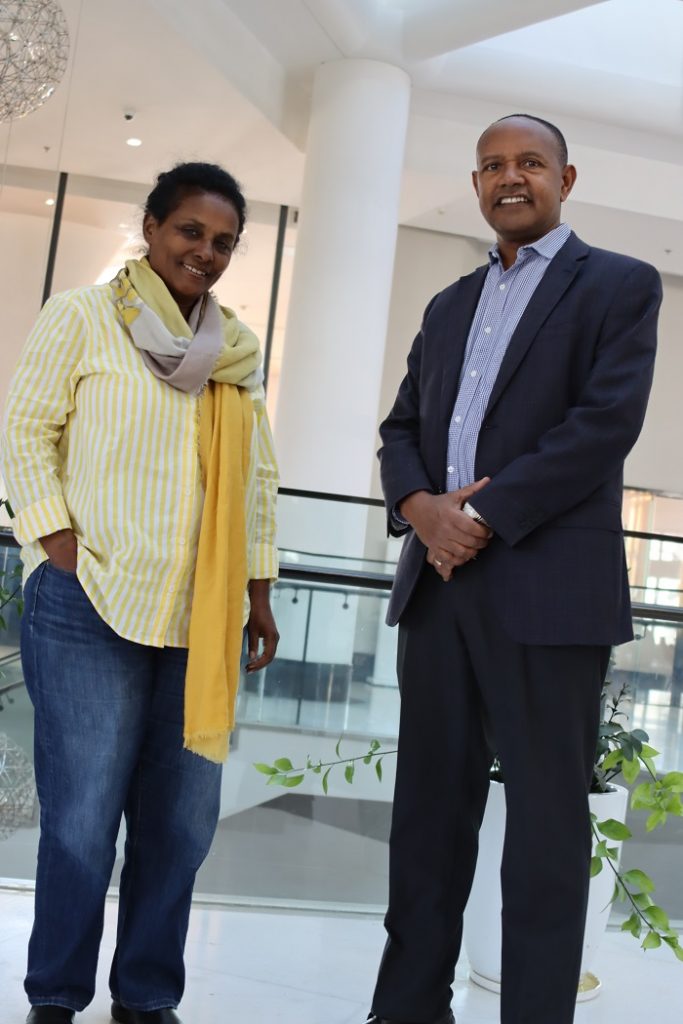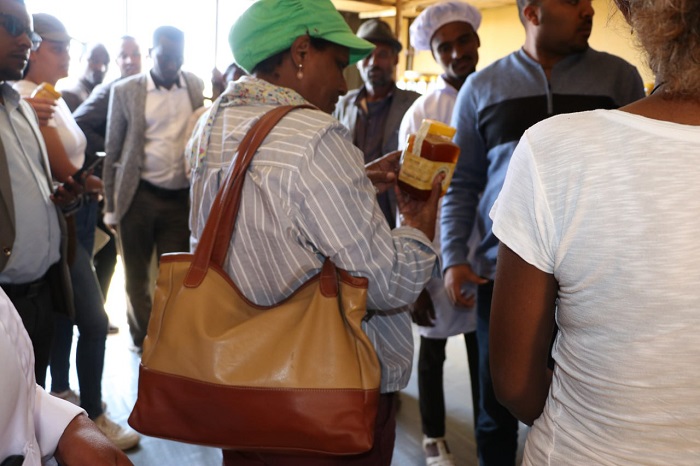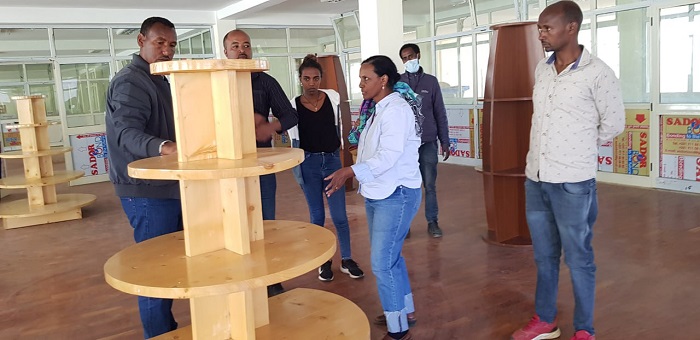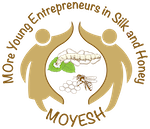Director General’s visit to Ethiopia consolidates existing partnerships and finds new opportunities for collaboration
Dr Segenet Kelemu, Director-General & CEO of the International Centre of Insect Physiology and Ecology (icipe) paid a fruitful visit to Ethiopia from 11-27 January 2023 to consolidate existing partnerships and finds new opportunities for collaboration. The main objective of her mission was to find out how the project has linked and served the community in the country by discussing it with high-level officials and key stakeholders.

Dr Kelemu held different meetings and discussions with high-level officials and different partners. These include H.E. Dr Fikru Regassa, State Minister, Ministry of Agriculture (MOA), Ethiopia; Samuel Yalew Adela, Country Head, Mastercard Foundation Ethiopia; H.E. Dr Yilkal Kefale, Amhara Regional State President, district administration officials and youth partners.


Dr Kelemu also visited MOYESH project sites where beekeeping and value chain activities were demonstrated by youth in the Guagusa Shikudad and Lasta districts of the Amhara Region. Dr Kelemu met with organized youth groups, listened to their voices, and observed the winning mindset. During the meeting with district administrations, experts and regional staff. Dr Kelemu shared her thoughts and inspired the stakeholders highlighting the aggregated effects of engaging in improved beekeeping and high-value integrated business. These include bee forage development, colony multiplication, royal jelly production, crop pollination, and many others. Dr Kelemu also advised the youth and experts to incorporate other icipe technologies push-pull to diversify sources of income and increase the return from beekeeping and allied business investments.
Addressing the high officials and local authorities, Dr Kelemu also shared her remarkable point of view regarding the icipe’s vital support for initiatives intended to create sustainable jobs for the farming communities, particularly youth and women. Dr Kelemu emphasized that including modern beekeeping and sericulture, development icipe has also introduced lots of insect-based technologies for the entire world for decades. Recently, icipe introduced a new technology, the Black Soldier Fly (Hermetia illucens Linnaeus) Farming. It is a new player in the circular economy that enormously increase the availability of sources of animal feed, which leads to improved poultry, fish, and pig production. This is a really thought the very important opportunity for Ethiopia to introduce the use of insect protein, particularly the mass production of black soldier fly (BSF). A BSF is a modern-day technology that helps to enhance food and nutrition security, alleviate poverty, and reduce the high burden of Ethiopian youth unemployment.

Ethiopia is overburdened with high unemployment in general and youth unemployment. The current absolute size of the national labour force is estimated at 69 million (AERC, 2021). The situation is worse for women. Considering this icipe and Mastercard Foundation launched the More Young Entrepreneurs in Silk and Honey (MOYESH) project in 2019 which helps to provide decent jobs for 10,000 Ethiopian youths. Since its inception, the project created jobs for 96,000 (63%women) youth through beekeeping and sericulture development.
Dr Kelemu also visited the Lalibela National Bee Resource Museum in the Lasta district and met with the administrator. The museum is the first and only national center for an integrated bee product market in Ethiopia. It hosts icipe’s beekeeping technical training, such as bee forage development, bee queen rearing, hive inspection and colony transferring. These are very crucial to transform the beekeeping sector and have huge potential to address the real demand of young people and the nation in creating decent jobs for millions across the value chains.

Notes for Editors
About Mastercard Foundation
Mastercard Foundation seeks a world where everyone has the opportunity to learn and prosper. Through its Young Africa Works strategy and Canadian EleV program, the Foundation works with partners to ensure that millions of young people, especially young women, access quality education, financial services, and dignified work. Mastercard Foundation was established in 2006 through the generosity of Mastercard when it became a public company. The Foundation is independent with its own Board of Directors and CEO. For more information and to sign up for the Foundation’s newsletter, please visit http://www.mastercardfdn.org/ Follow the Foundation on Twitter at @MastercardFdn
The International Centre of Insect Physiology and Ecology (www.icipe.org), headquartered in Nairobi, Kenya, is the only research institution in Africa working primarily on insects and other arthropods. The Centre conducts world-class science and then translates this knowledge into innovative environmentally friendly, affordable, accessible and easy-to-use solutions to tackle crop pests and disease vectors. icipe’s role also extends to the conservation and sustainable exploitation of beneficial insect biodiversity. Thus, icipe works through the 4Hs Themes – Human Health, Animal Health, Plant Health and Environmental Health – a holistic and integrated framework that has sustainable development as its basis, to improve food security, health and the overall well-being of communities in Africa. We gratefully acknowledge the support of icipe core donors: Swedish International Development Cooperation Agency (Sida); Swiss Agency for Development and Cooperation (SDC); Australian Centre for International Agricultural Research (ACIAR); Federal Democratic Republic of Ethiopia and the Government of the Republic of Kenya. The views expressed herein do not necessarily reflect the official opinion of the donors.


